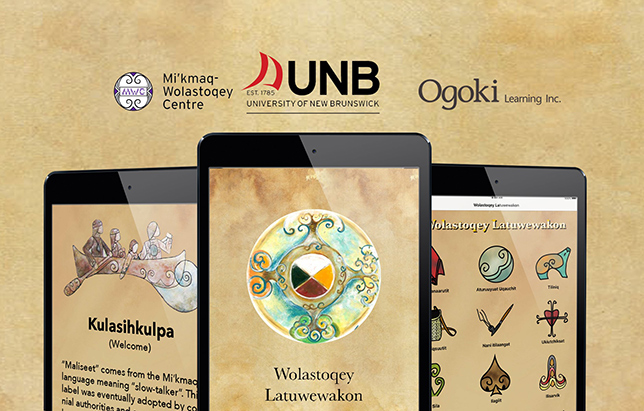Learning a new language is complicated. Learning a language that many people don’t speak anymore is even harder.
Wolastoqey, the language of the Wolastoqiyik (Maliseet), an Indigenous community traditionally found along the Saint John River, is a verb-based language that relies heavily on evocative descriptions and contextual relations. Rather than saying “moon,” a speaker might call the celestial object “grandmother moon.”
“You [also] wouldn’t just say ‘grandmother moon,’ it would be a whole story that would be attached to that,” explained Jennifer LeBlanc, the coordinator of Wabanaki Language Revival at the University of New Brunswick’s Mi’kmaq-Wolastoqey Centre. “It would be contextual. There might be a place attached to that story that you would use to describe that story. Or it would be a season that you would speak that story in, so maybe a winter story or a summer story.”
With so much context and fluidity in the language, it’s one that’s often intimidating for non-speakers. That’s why UNB has released the Wolastoqey Latuwewakon app, so people can learn at their own pace.

The free app is available to anyone with a mobile device, with the goal of reinvigorating the language. Many speakers fluent in the Wolastoqey language are community elders, with younger generations often only able to speak a few words. Ms. LeBlanc says that’s partly why the app was designed and distributed so widely.
“It comes with globalization, it comes with the way we’re all on our phones,” said Ms. LeBlanc. “It just makes sense to have an app on your phone that helps you be able to access the language, to write the language, to be able to speak it.”
The app was designed over more than a year by UNB with Ogoki Learning Inc., a company based out of Winnipeg. The app’s homepage features eight categories of vocabulary for users to explore, including identity and community, and the language of ceremony. Inside these sections, users can press English words or phrases to hear them spoken aloud by UNB’s elder-in-residence Imelda Perley, who is Wolastoqew with ties to Tobique First Nation, St. Mary’s First Nation and Houlton Band of Maliseets.
Over the coming weeks, Ms. LeBlanc says the group is looking to add to the app, including phonetic pronunciation guides and expanded vocabularies. Ms. LeBlanc says the app is a tool that can allow both Indigenous and non-Indigenous people access to a part of this community’s history and culture.
“[There is] a sense of pride, a sense of continued resilience in language learning.”